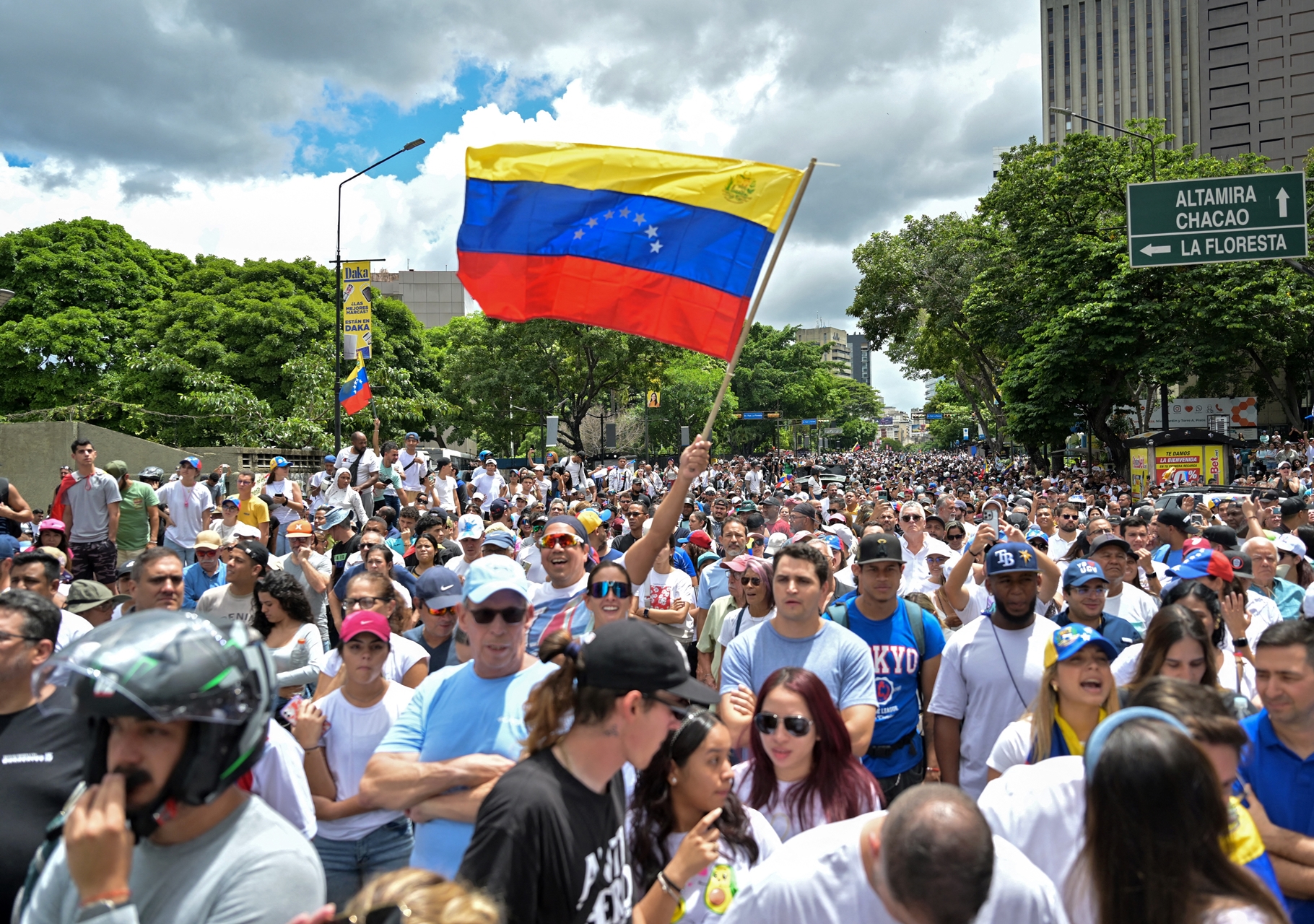7 key points from the UN session on Venezuela

The The United Nations (UN) held a session on Friday to discuss Venezuelaand the Independent International Fact-Finding Mission submitted a report reiterating that “The country is experiencing the worst wave of repression and human rights crisis since 2019”.
We present in 7 key points What they talked about at the UN session about Venezuela.
Risk of the disintegration of the rule of law
The UN Mission said that the risk of the disintegration of the rule of law in the country “It is very high” after the worsening of the human rights situation and the reactivation of “the repressive machinery” after July 28.
“The repressive machinery of the Venezuelan State continues to commit serious human rights violations and crimes. The victims, and the population in general, are helpless in the face of the arbitrary exercise of power“This is happening in a context in which the minimum semblance of legality in the actions of the authorities is disappearing. The risk of a disintegration of the rule of law in Venezuela is very high,” said the president of the mission, Marta Valiñas, at the Human Rights Council.
“A plan designed to discourage, silence and nullify political opposition”
Valiñas said that these “violations” are the result of a “plan designed in advance and executed through different forms of repression.” In his opinion, it is a plan that seeks to “discourage, silence, and nullify political opposition and critical voices to President Maduro’s government” or those who demand transparency in the election results.
Arbitrary arrests, even of minors
According to the New report from the UN MissionBetween December 2023 and March 2024, at least 48 people (39 men and 9 women), including civilians and military personnel, were arrested. All in connection with what the authorities considered conspiracies to destabilize the country, overthrow the government or attempt on the life of the president or other high-ranking officials.
They stressed that the mission investigated emblematic cases of arbitrary detentions of well-known personalities, such as the lawyer and human rights defender Rocio San Miguel and their families.
The UN Mission on Venezuela documented at least 158 children, some with disabilities, detained after post-election protests, charged with serious crimes such as terrorism and inciting hatred: “The mission has already been able to document serious violations of international child protection standards.”
Repression of peaceful demonstrations and persecution of protesters
Valiñas said that the wave of citizen protest that followed the CNE announcement was repressed “with unusual harshness and violence”According to sources from civil society organizations, 915 protests were recorded throughout the country between July 29 and 31.
“The mission carried out preliminary investigations and confirmed the violent deaths of 25 people in the context of citizen protests or gatherings; 24 of them died from gunshot wounds, most of them young men from poor neighborhoods under 30 years of age.”said.
UN mission denounces before the Human Rights Council that, after the CNE announced Maduro’s victory without evidence, repression and persecution have increased in #Venezuela:
“25 people were killed, a very high number of people were arrested, including children and… pic.twitter.com/oK3HwRpP8c
— PROVEA (@_Provea) September 20, 2024
The mission said that they do not yet have sufficient evidence to attribute responsibility in these cases of deaths. But in several of these cases they managed to document “the presence of members of the Bolivarian National Guard or the Bolivarian National Police using their firearms to repress the protests.”
Forced disappearances and torture
The mission found that “The practice of short-term forced disappearances continues”. Based on a strict interpretation of international standards, it found reasonable grounds to believe that in 13 cases “state agents carried out deprivations of liberty and refused to acknowledge the fate or whereabouts of detained persons, removing them from the protection of the law.”
«They also continued the acts of torture and cruel treatmentinhuman or degrading. The mission identified a number of methods of torture used by security forces or intelligence services:
- Punching.
- Hitting with wooden planks or bats wrapped in foam.
- Electric shocks.
- Suffocation with plastic bags.
- Cold water immersion.
- Forced sleep deprivation.
Laws that undermine civil society
Marta Valiñas emphasized that the violations described “They took place within the framework of an increasingly reduced civic and democratic space.”
He recalled that on August 15, the Venezuelan Parliament unanimously approved the Law on supervision, regulation, performance and financing of non-governmental organizations and non-profit social organizationsThis is despite recommendations to the contrary from the mission, as well as from the Office of the High Commissioner and the Inter-American Commission on Human Rights.
“The approved text is incompatible with international norms and standards on the right to freedom of association and further restricts the ability of civil society organizations, including human rights organizations, to act freely.”
UN highlights the importance of the international community regarding Venezuela
He stressed that The international community faces a great responsibility to stop this persecution.as well as to ensure that “the violations and crimes that have been committed and continue to be committed do not go unpunished.” Also to encourage victims, “ensuring that they can obtain justice.”
Independent journalism needs the support of its readers to continue and ensure that uncomfortable news that they don’t want you to read remains within your reach. Today, with your support, we will continue working hard for censorship-free journalism!
